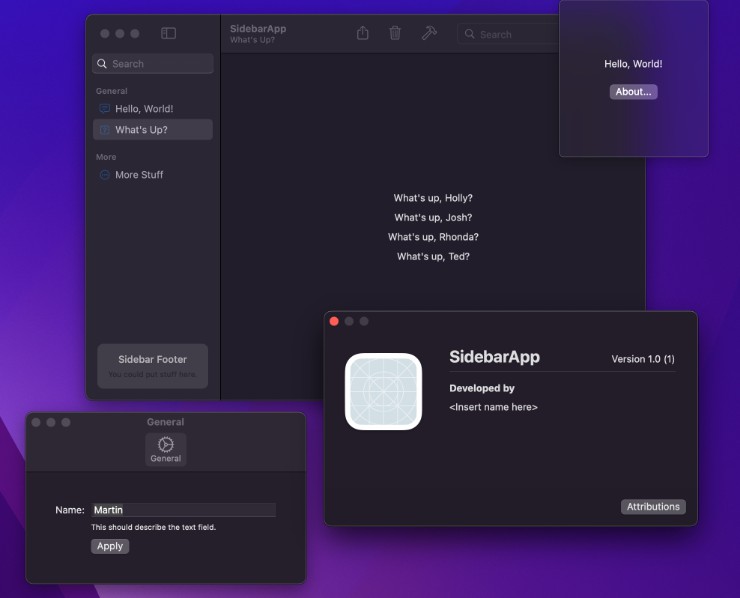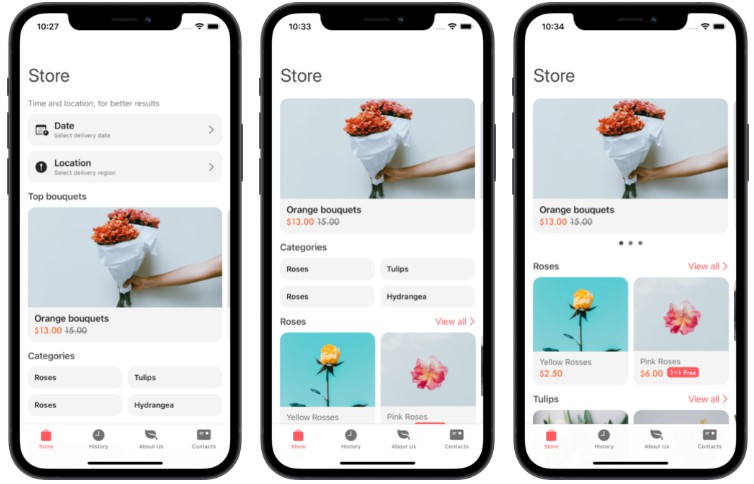Windows Empty Swift Application Template
This provides a template project to build a Swift application on Windows using Swift/Win32.
Build Requirements
- Swift 5.4 or newer
- Windows SDK 10.0.10773 or newer
- Swift/Win32 development
Building
The project can be built using Swift Package Manager’s build command. Additionaly, the application needs to have a manifest integrated into the binary. This requires additional operations which cannot be automated with Swift Package Manager currently. Additionally, some files need to be deployed manually as they need to be placed in a specific layout.
Currently, the LLVM manifest tool (llvm-mt) is unable to perform the operation and thus this must be done with the MSVC toolset.
swift build
mt -nologo -manifest Sources\Application\Application.exe.manifest -outputresource:.build\x86_64-unknown-windows-msvc\debug\Application.exe
copy Sources\Application\Info.plist .build\x86_64-unknown-windows-msvc\debug\
Testing
The project uses XCTest to add unit tests. You can run the unit test suite using Swift Package Manager’s test command.
swift test
Debugging
In order to debug the package, there are two options. In order to debug with LLDB, which is required for debugging Swift code, the linker needs to preserve the debug information. This is accomplished by passing an additional flag during the build.
swift build -Xlinker -debug:dwarf
When trying to debug the interactions with the system, it is convenient to use the Windows tooling for debugging (e.g. WinDBG). In such a case, the debug information needs to be emitted for Windows. This requires passing additonal flags to Swift Package Manager.
swift build -Xswiftc -g -Xswiftc -debug-info-format=codeview -Xlinker -debug



